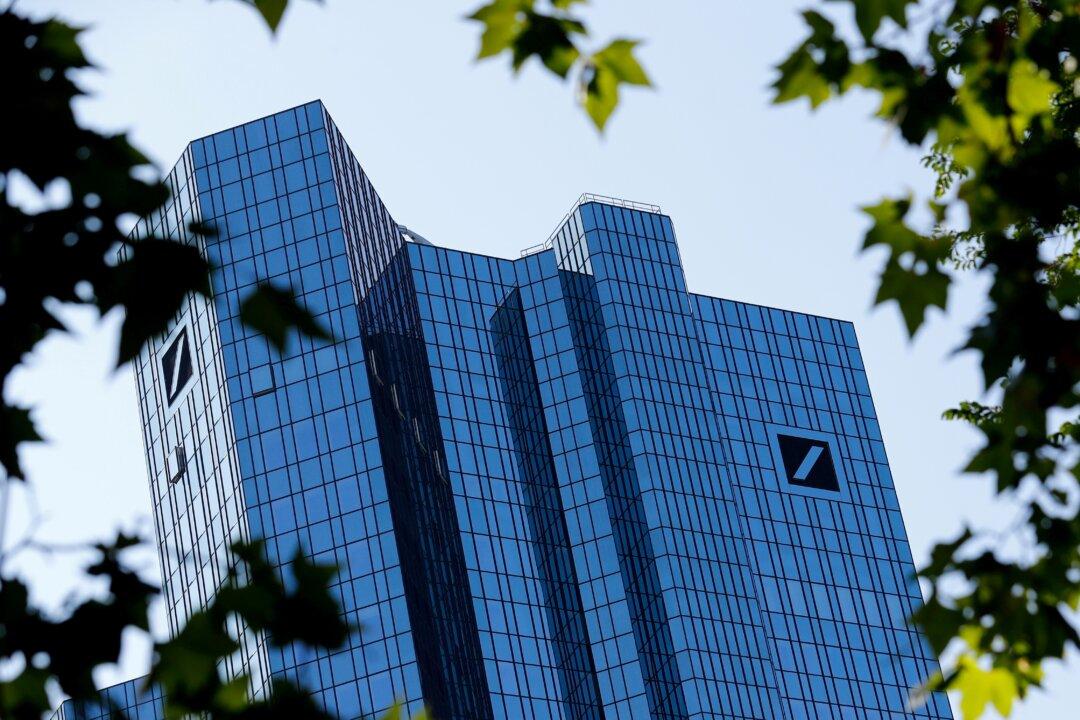FRANKFURT—Deutsche Bank is to cut 800 jobs in a new cost-saving drive after reporting a bigger than expected rise in profit for the first quarter, a volatile period globally for finance companies.
Germany’s biggest bank produced solid earnings at a time when banks had to be rescued in the United States and in Switzerland. The turmoil caused investors to panic and customers to withdraw deposits, and the turbulence is continuing.





